ARTSHOP: Fluorescent Prints | "Thermal Expansion" Paintings | Toutenfluo Art | Gallery Prints | Museum Prints | Toutenfluo Prints |
CD-Roms | Ordering Information
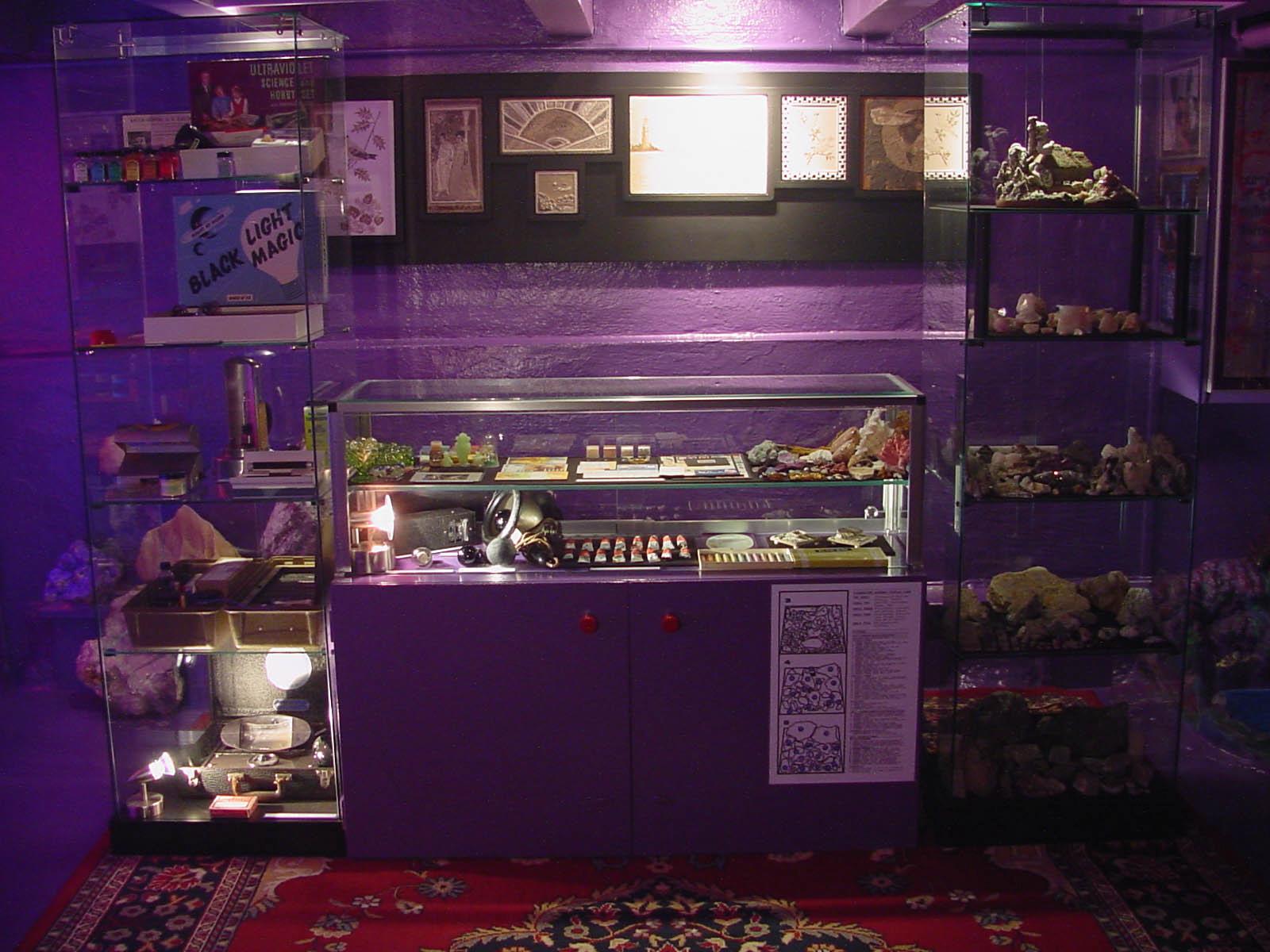

"ELECTRIC LADYLAND - the First Museum of Fluorescent Art"
DEMONSTRATIONS
The guided tour of "Electric Ladyland - the First Museum
of Fluorescent Art" is divided in two parts. The First half is
exploring in the Fluorescent "Participatory" Environment,
and the Second half of the guided tour concentrates on the
phenomenon of Fluorescence in the Natural World.
This includes Demonstrations of large collections of Fluorescent Minerals
and Crystals from all over the planet, which are mostly
very common looking rocks, but when they are seen under different
wavelengths of Ultraviolet lamps they burst into dazzling
colors.
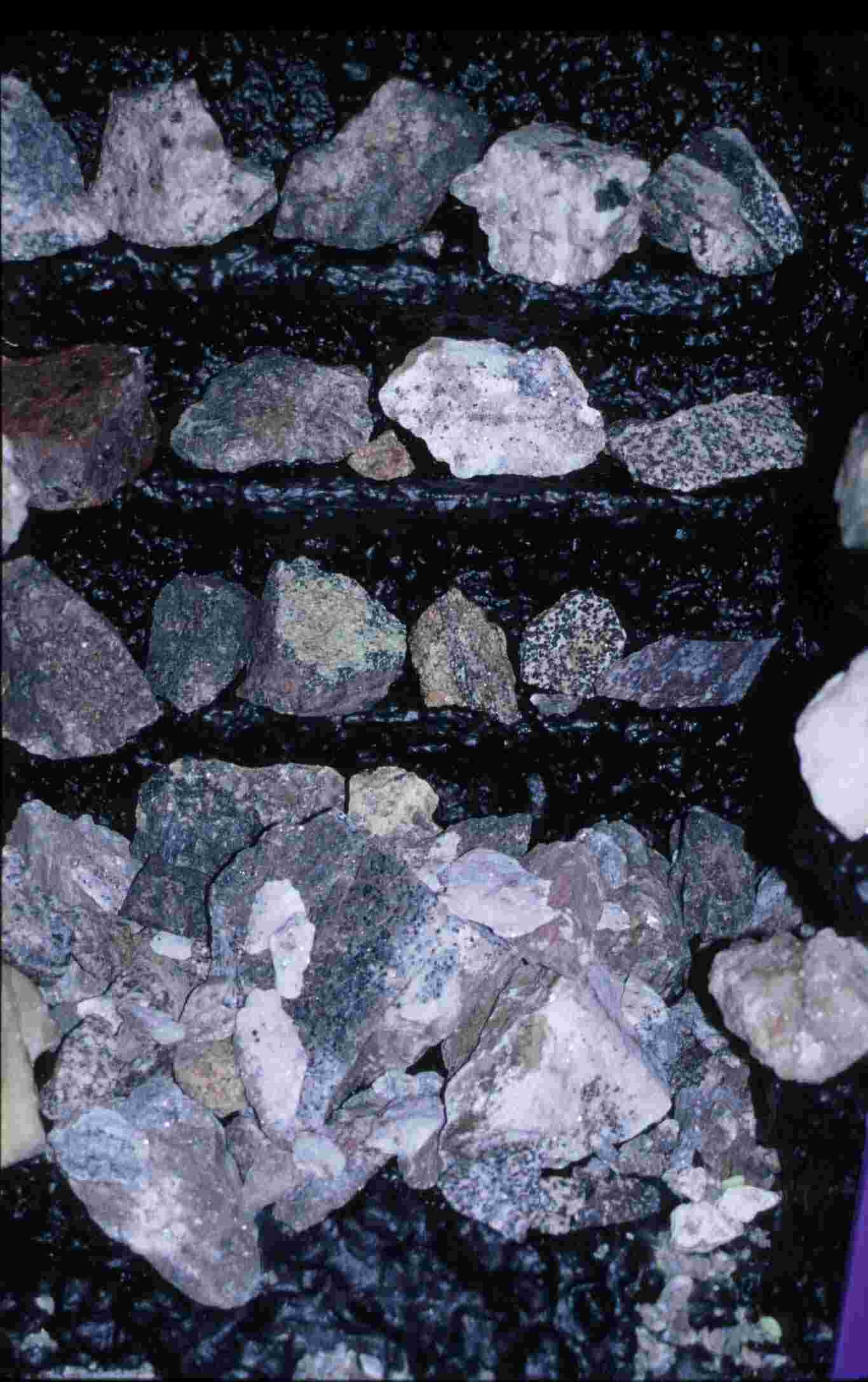
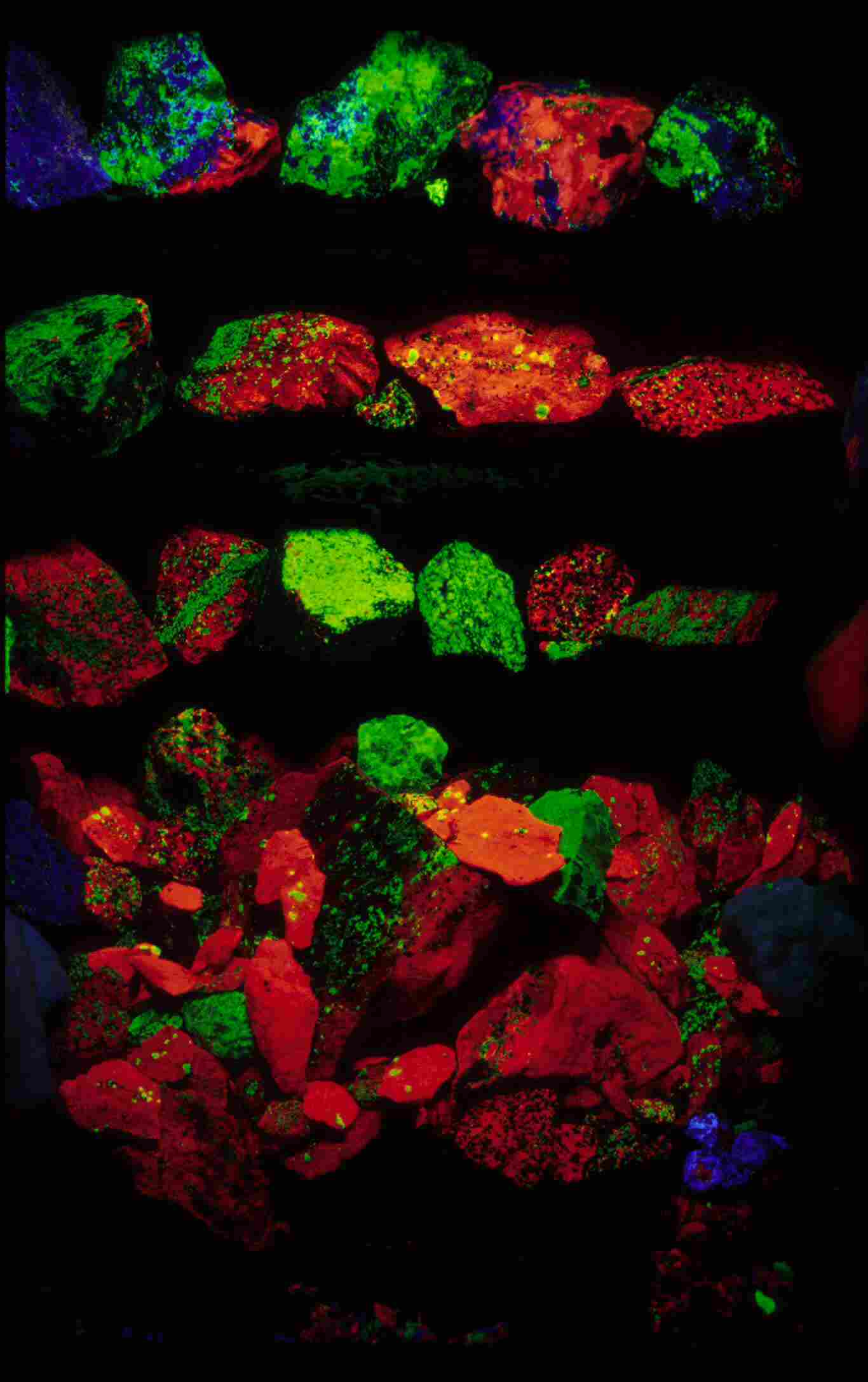
There is a large "Fluorescent Mineral Viewing Box" containing
several hundred pounds of Fluorescent Minerals which are seen
under White lights, then Longwave Ultraviolet lamps,
and next, powerful Shortwave Ultraviolet lamps.
With hand-held Longwave and Shortwave U.V. lamps, Demonstrations
are given on "Common Items that are Fluorescent,"
which is a display including very common items people
see on a daily basis without realizing they are Fluorescent. These
examples of
"Common Items that are Fluorescent" have brilliant unforeseen
colors under the Black Light, including Depression Glass, Coconut,
Orange Lentils, Sea Shells, Lichens, Coral, Rubies, and
many others.
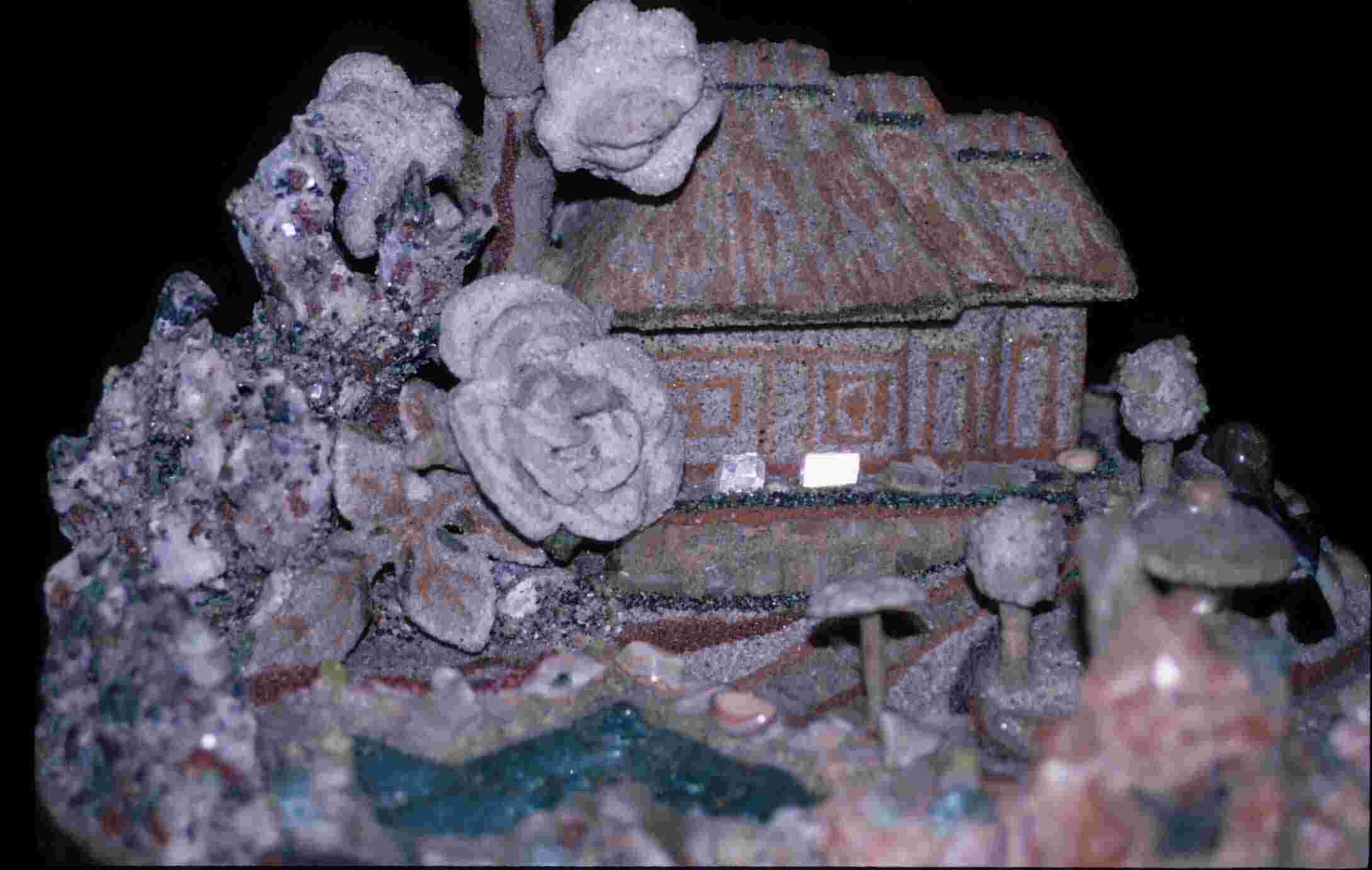
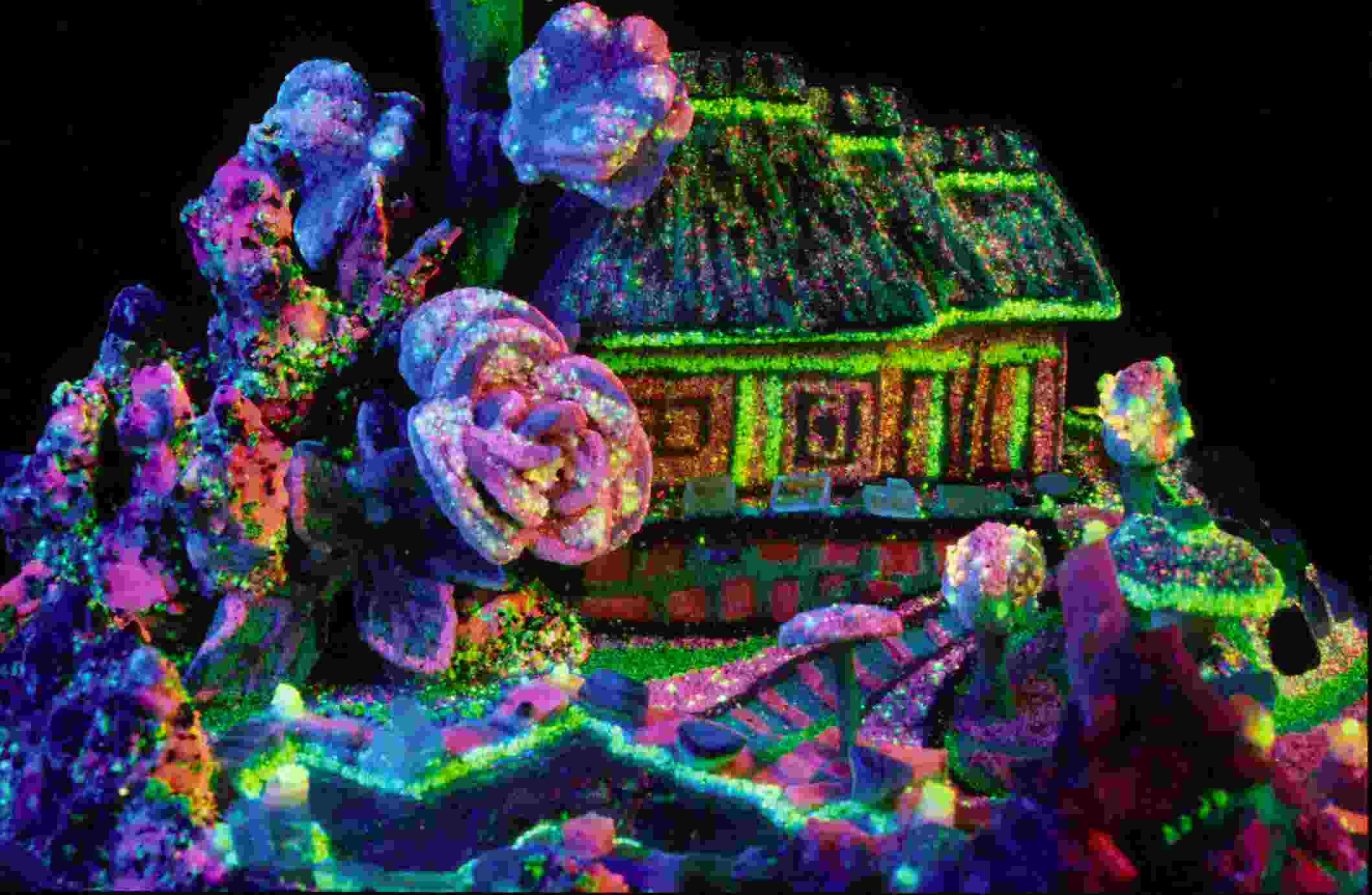
The Demonstrations continue with ten pieces of Fluorescent
Mineral Artwork from the 1950's in New Jersey
"The Fluorescent Mineral Capital of the World."
These are very plain colorless pieces of Art in the White light,
that contain colors that are nearly kaleidoscopic when
seen under Longwave and Shortwave U.V. lamps.
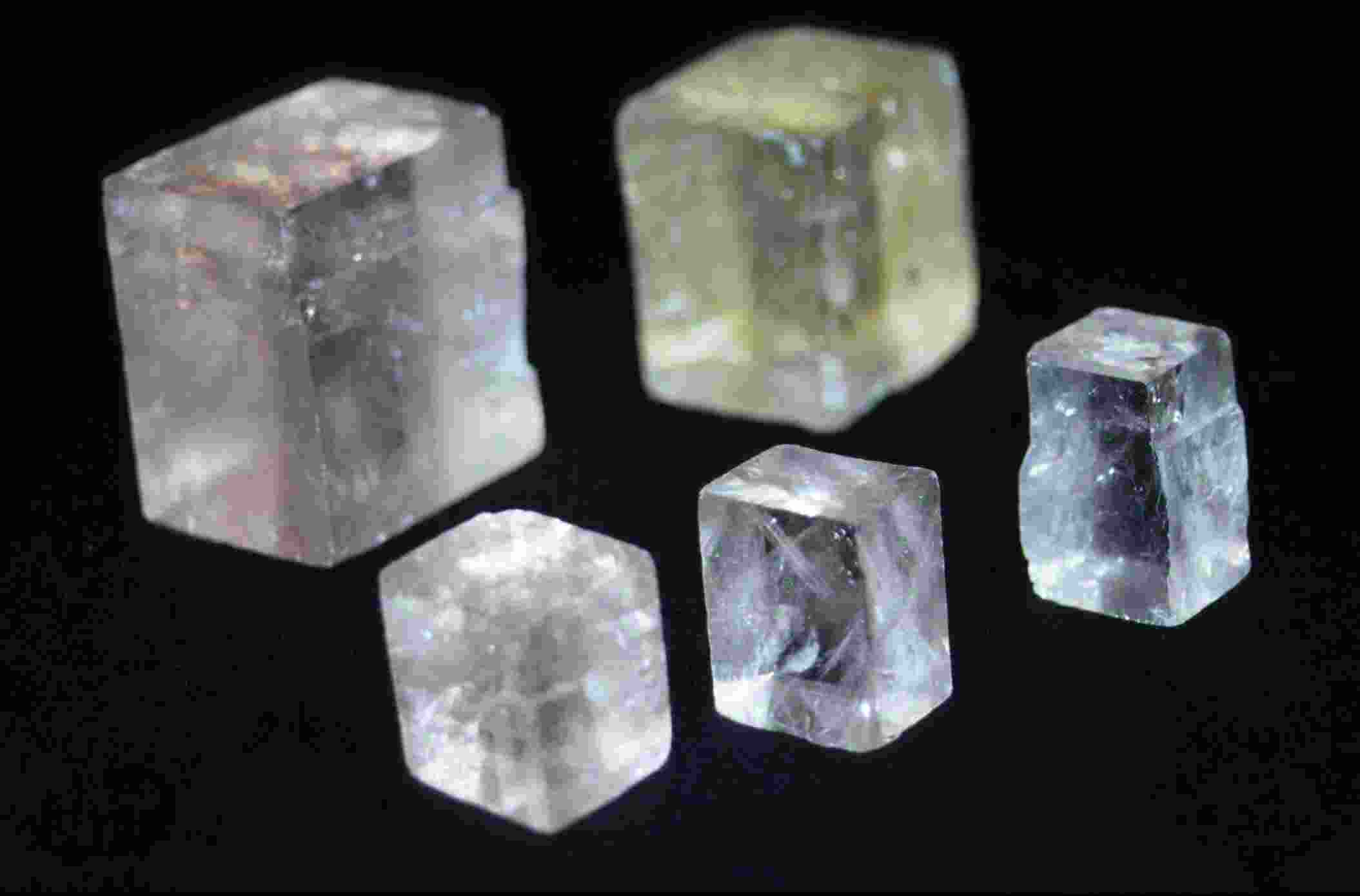
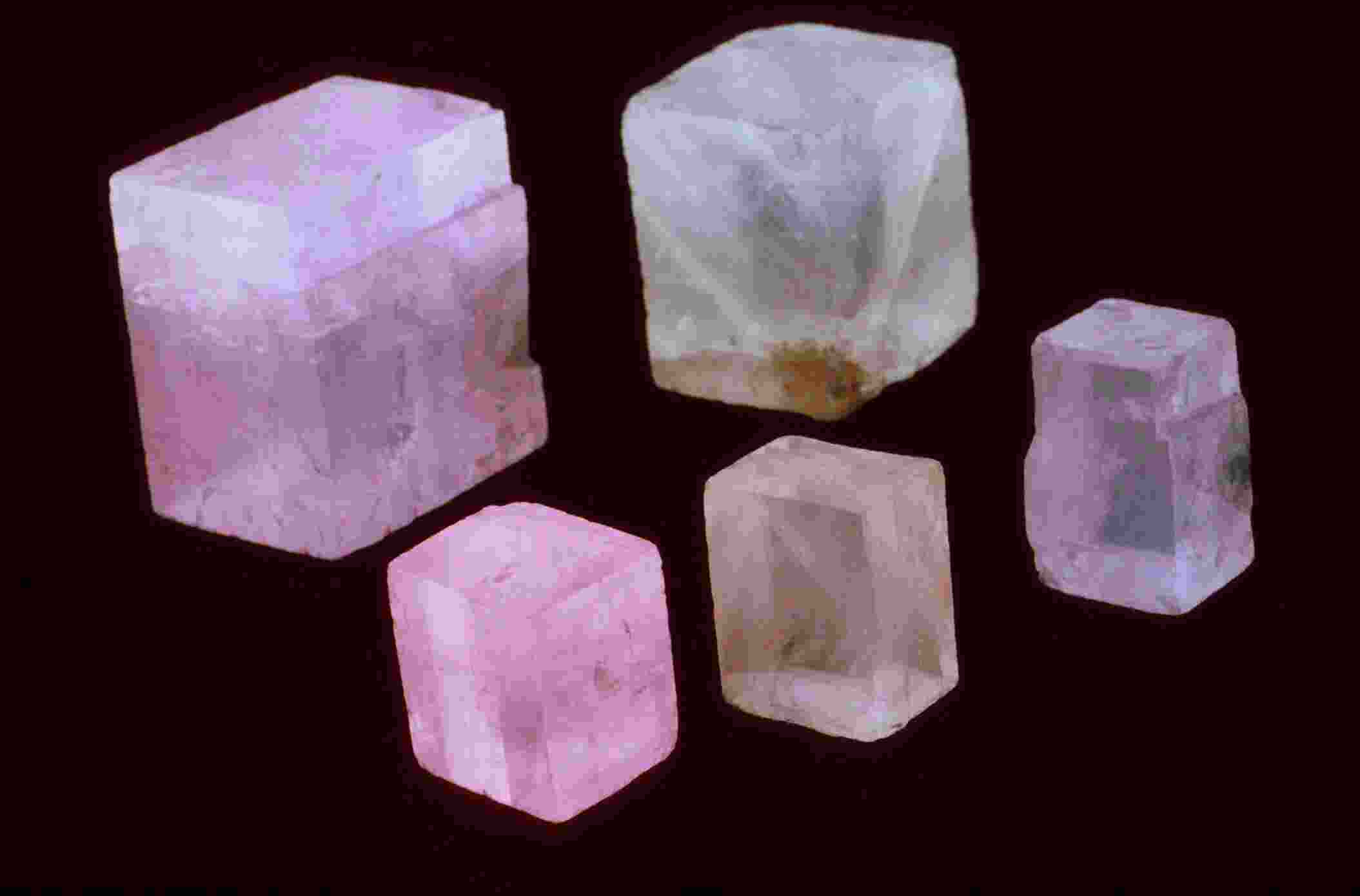
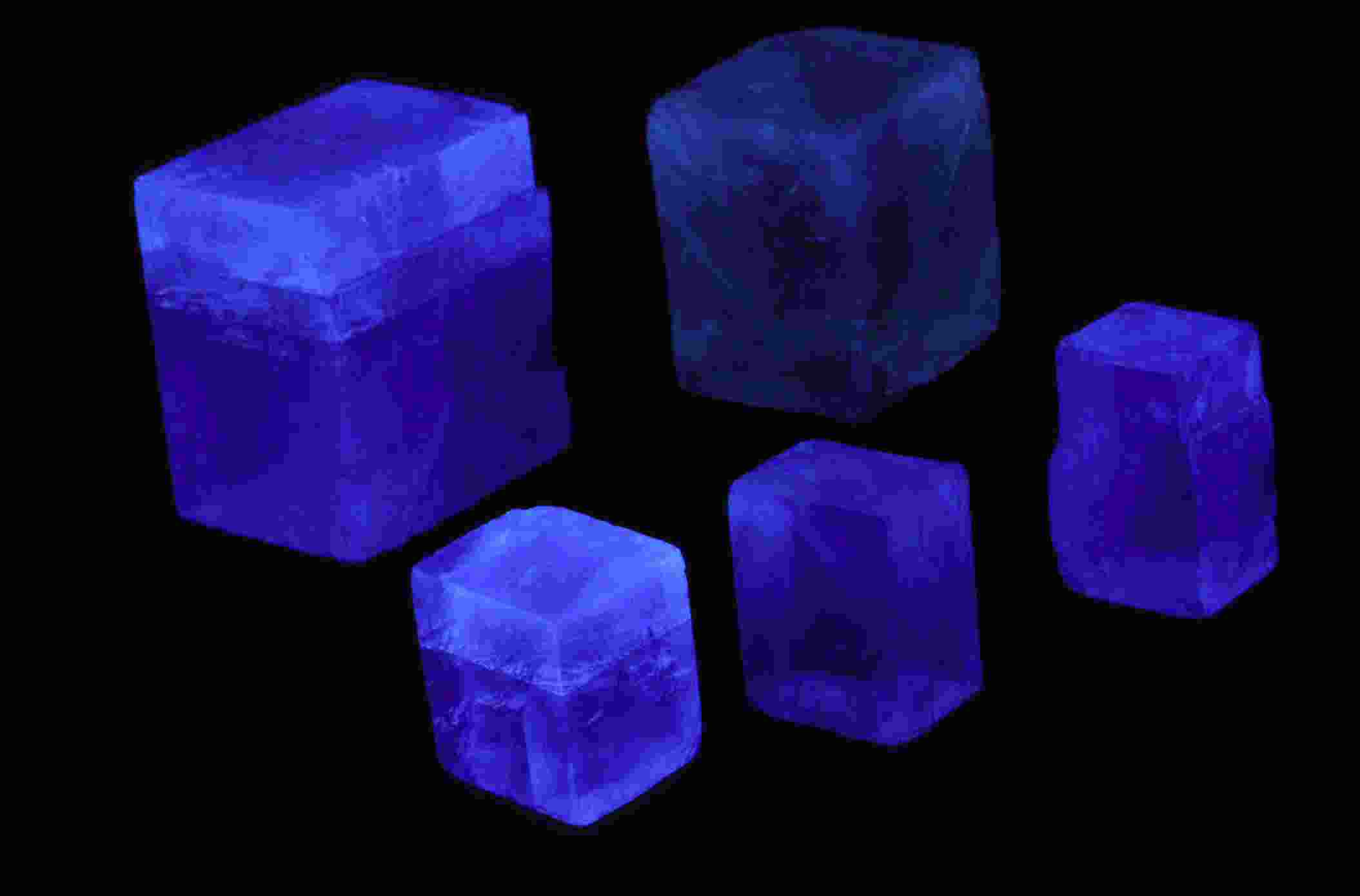
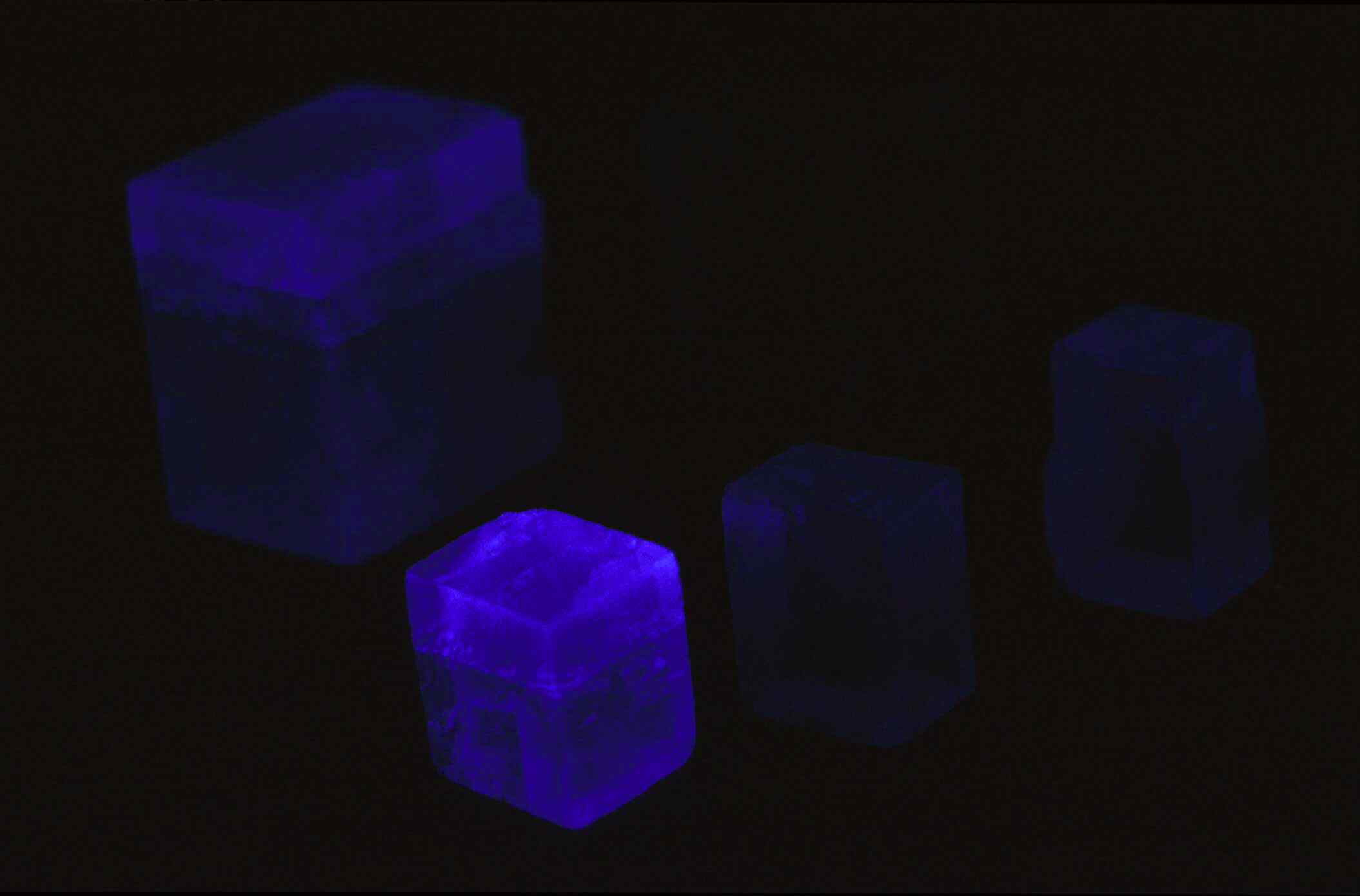
In a tall display case Demonstrations are given on varied
aspects of Mineral Fluorescence, including Fluorescent Crystals that
are different colors when seen under different U.V. lamps,
Phantom Crystals, and Phosphorescent (Glow-in-the-Dark)
Fluorescent Minerals that continue to give off light
for a long time when all the lights are turned off.
In the four photographs above, there are five pieces
of Rhombohedral calcite from Chihuahua, Mexico
in four different states of lighting. The first
photo is with the White light, the second picture is under
the Longwave U.V. lamps (Black Light), next the crystals
are under the Shortwave U.V. lamps,
and the last photo is the Phosphorescence of the crystals
(Glow-in-the-dark).
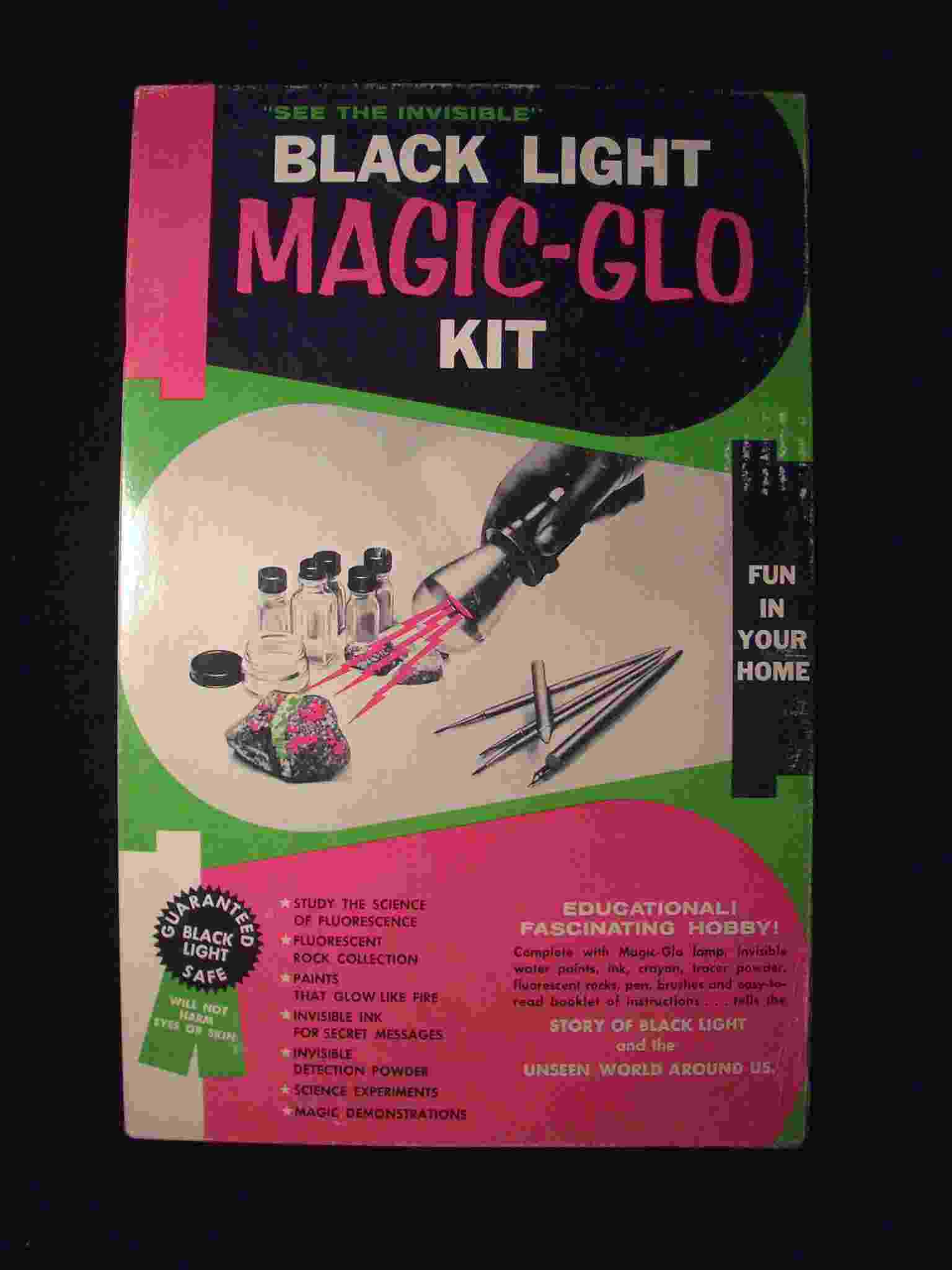
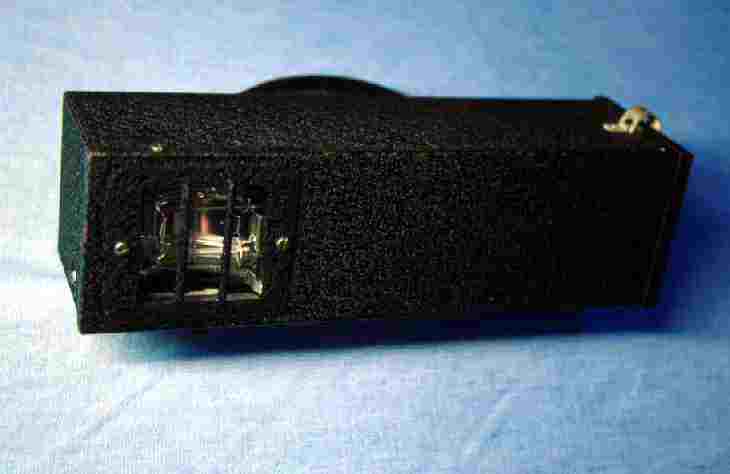
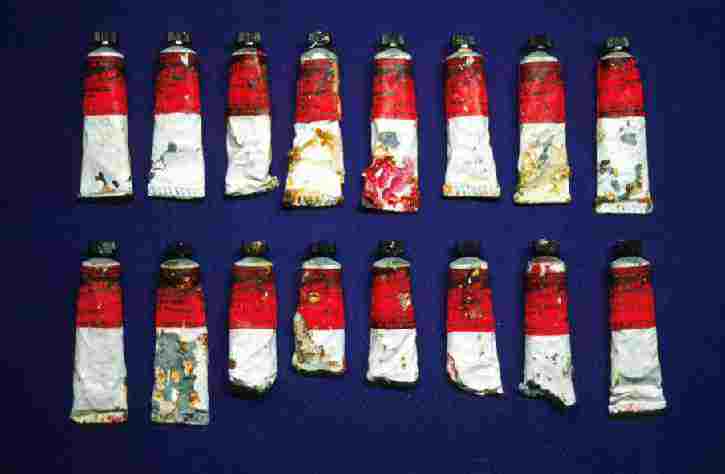
In another tall display case there are Ultraviolet Artifacts,
including Fluorescent Paint Sets from the 1950's,
the first portable Shortwave U.V. lamp from 1938 (above
left photo,) and the first Longwave Ultraviolet bulb sold in 1932
called an "Argon Bulb." There are Ultraviolet Artifacts
from diverse fields including Criminology,
Industry, Medicine, Germinology, and Astronomy on display.
There are also very rare sets of
Fluorescent "Invisible" Paints and Fluorescent "Invisible"
Chalks made before 1953 in San Francisco,
which appear colorless in the White light, but vividly
Fluoresce a rainbow of colors under the Black Light.
Fluorescent Mineral Demonstrations are also given on large
specimens, including a 70 lb. (30+kilo) piece of
Willemite and Calcite from Franklin, New Jersey, that
visitors can rub with their fingers, which are then vividly Fluorescent!
Demonstrations are given on many different aspects of
Fluorescence, including "Fluorescence in Astronomy,"
"Fluorescence in Geology," and "Fluorescence in Oceanography."
For the final Fluorescent Mineral Demonstration, another
phenomenon of Luminescence is seen. Visitors have already seen
Fluorescence, Phosphorescence, Non-Linear Fluorescence,
Triboluminescence, and Irreversible Photosensitivity separately
Demonstrated with different specimens of crystals and
minerals, but the final Demonstration is very special.
A piece of Green Hackmanite (Sodalite) from Greenland,
and a piece of Gray Hackmanite (Sodalite) from Norway
are first seen in White light - they are Green and Gray.
The Shortwave U.V. lamp is then put on top of the two minerals
for ten seconds. When the Shortwave U.V. lamp is
removed, the former Green and Gray pieces of Hackmanite (Sodalite)
have turned bright Purple / Magenta! Ten more seconds
under the White halogen lights, and the bright Purple / Magenta
color has completely disappeared, and the two specimens
are back to spinach Green and Gray all over again.
This amazing phenomenon is known as Tenebrescence, or
Reversible Photosensitivity, but when seen before your eyes,
it looks a little closer to something called "Magic."
On display is also an original Black Light poster from
1967 which changes from the White light to the Black Light,
and an original Fluorescent Advertisement that also changes
pictures from the White light to the Black Light.
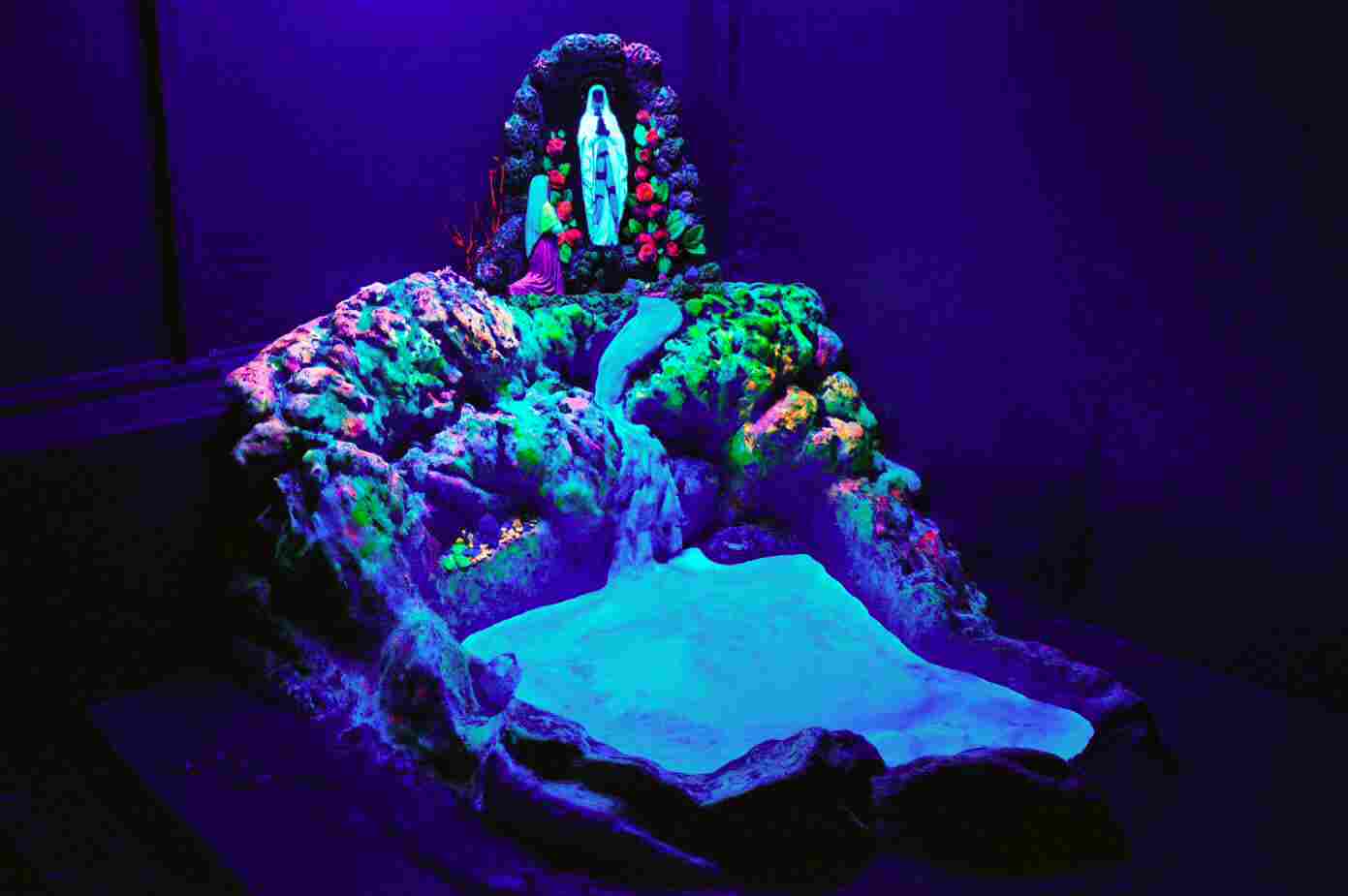

The Bernadeth Grotto sculpture is seen under Black Lights,
which contains tiny marble statues from India, many pieces
of Fluorescent Minerals, and a Bonsai branch set into
a very Organic Fluorescent Environment made by Michele Delage.
As a spiritual compliment along side of the Bernadeth
Grotto, there is also a Trishule, Damroe, and Shiva Linga from
Hardwar, India.